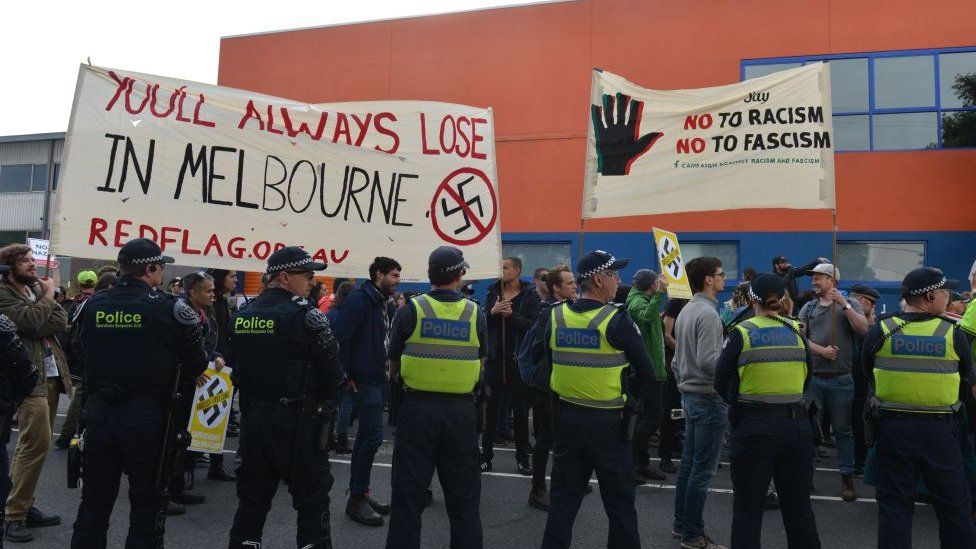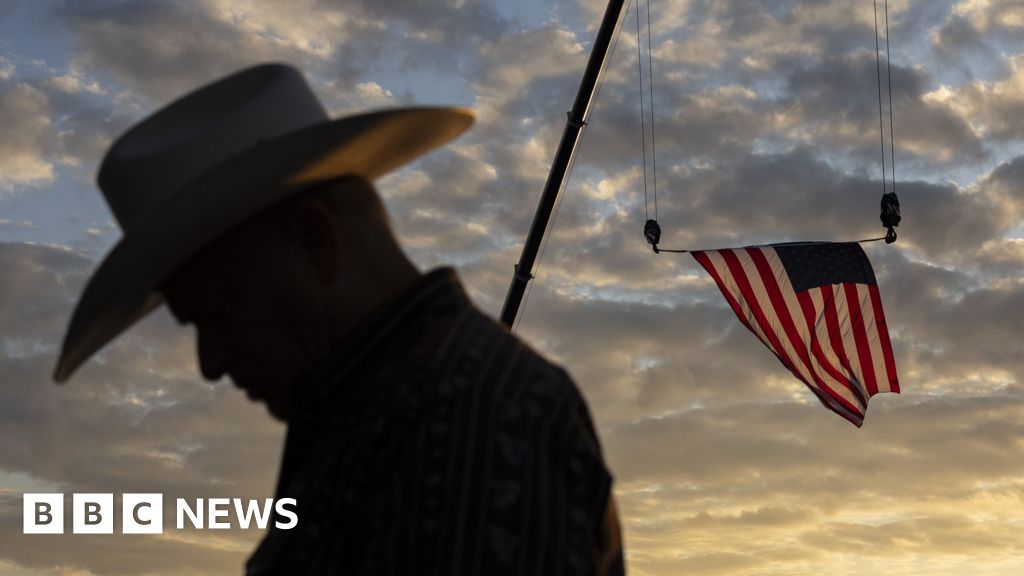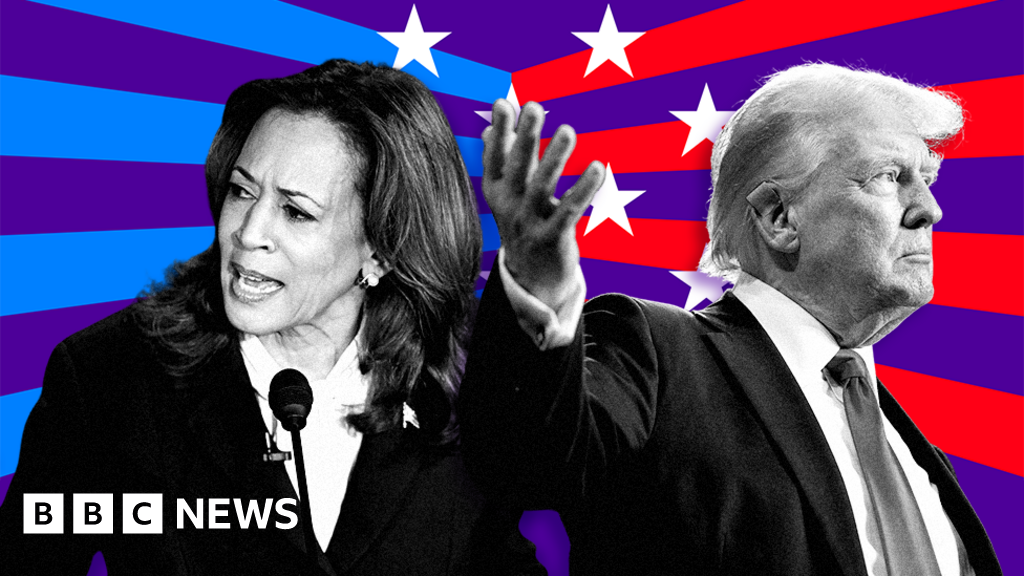ARTICLE AD BOX
 Image source, Getty Images
Image source, Getty Images
Melbourne has seen neo-Nazi protests, and counter protests, in recent times
By Tom Housden
BBC News, Sydney
Australia has announced it will introduce a national ban on Nazi symbols, in an effort to crack down on far-right groups.
Public displays of the swastika or SS symbols will be punishable by up to a year in prison. However the new laws will not cover the Nazi salute.
Nazi symbols are already banned in many states, but this means they won't be allowed anywhere, the government says.
The move comes amid a resurgence in far-right activity.
In March, a group of neo-Nazis appeared at a rally in Melbourne hosted by Kellie-Jay Keen-Minshull - who is known for her opposition to transgender rights - and performed Nazi salutes on the steps of the Victorian Parliament.
Ms Keen-Minshull denied any connection to the group, but the event triggered a political backlash with calls for greater efforts to tackle displays of Nazi regalia.
"There is no place in Australia for symbols that glorify the horrors of the Holocaust," Attorney General Mark Dreyfus said, announcing the new legislation.
"We will no longer allow people to profit from the display and sale of items which celebrate the Nazis," he added.
The ban includes the trade and public display of flags, armbands, T-shirts, insignia and the publication of symbols online promoting Nazi ideology, Mr Dreyfus said.
However public displays of the Nazi swastika and SS symbols for academic, educational, artistic, literary, journalistic or scientific purposes will be allowed.
The Nazi salute is not covered by the legislation and will instead be left to state authorities to police. Victoria and Queensland already announced bans earlier this year.
The ban was also carefully drafted to exclude the display of the swastika in religious contexts, due to its spiritual significance.
The Nazi swastika is derived from an ancient hooked cross motif which remains a sacred symbol in Hinduism, Buddhism and Jainism.
Dvir Abramovich, chairman of Australia's Anti-Defamation Commission, described the move as a "profound moment that represents the culmination of a six-year personal campaign".
The recent presence of neo-Nazis on Australian streets took Holocaust survivors "back to their darkest days", Mr Abramovich told the BBC.
"It tears a hole in their heart. I don't think they imagined that in their lifetime, they would see the resurgence of neo-Nazism."
Mr Abramovich said that while there was no "silver bullet" to deal with "hardcore bigots", the new laws were a step in the right direction.
"What is needed is a whole-of-society approach, to tear it at its root," he added.
Prior to recent events in Melbourne, local media reported that neo-Nazis had infiltrated anti-lockdown protests during the Covid-19 pandemic to spread their message and recruit members.
And last month, Australia's security chief warned that the country's extremist far-right was becoming "emboldened" to take to the streets.
"We have seen a rise in people drawn to this ideology, for reasons we don't fully understand," Australian Security Intelligence Organisation Director General Mike Burgess said.

 1 year ago
28
1 year ago
28








 English (US)
English (US)